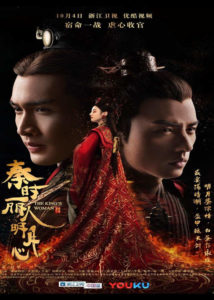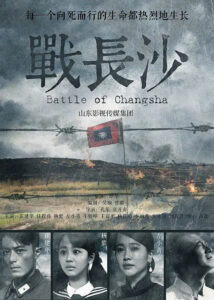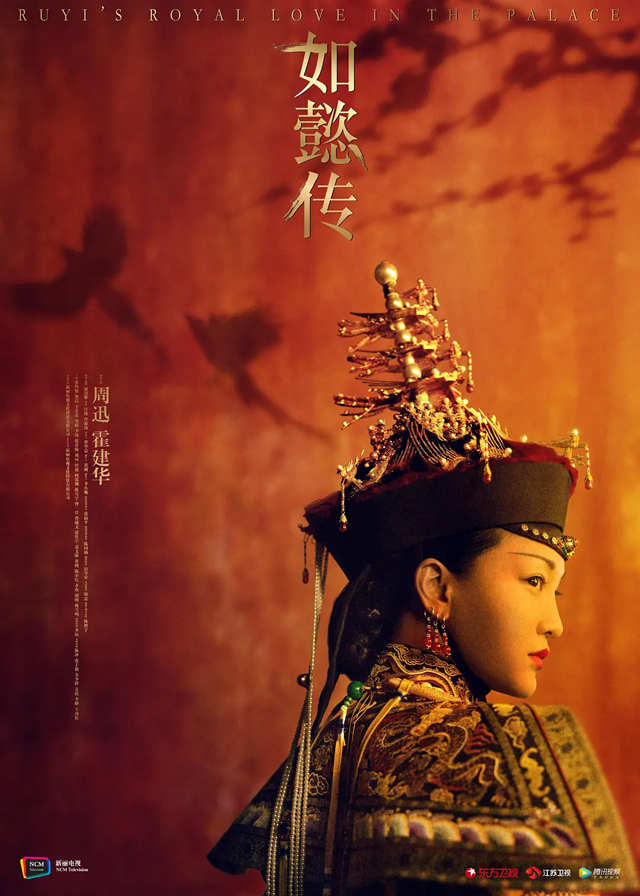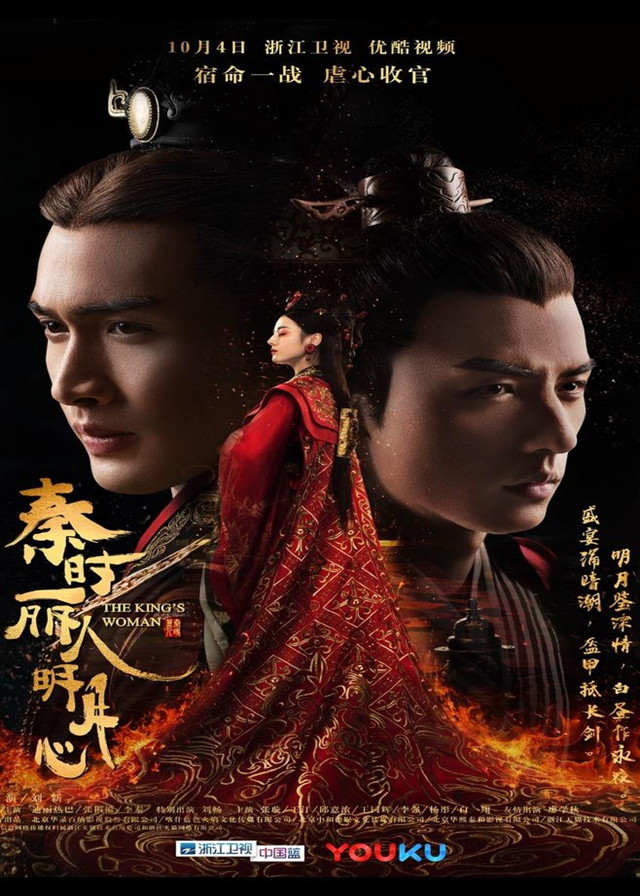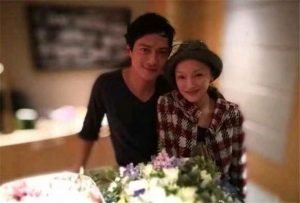Ruyi's Royal Love in the Palace Episode 37 Recap
> Ruyi's Royal Love in the Palace Recap
- 1
- 2
- 3
- 4
- 5
- 6
- 7
- 8
- 9
- 10
- 11
- 12
- 13
- 14
- 15
- 16
- 17
- 18
- 19
- 20
- 21
- 22
- 23
- 24
- 25
- 26
- 27
- 28
- 29
- 30
- 31
- 32
- 33
- 34
- 35
- 36
- 37
- 38
- 39
- 40
- 41
- 42
- 43
- 44
- 45
- 46
- 47
- 48
- 49
- 50
- 51
- 52
- 53
- 54
- 55
- 56
- 57
- 58
- 59
- 60
- 61
- 62
- 63
- 64
- 65
- 66
- 67
- 68
- 69
- 70
- 71
- 72
- 73
- 74
- 75
- 76
- 77
- 78
- 79
- 80
- 81
- 82
- 83
- 84
- 85
- 86
- 87
The Emperor was consumed by grief over the death of his son, Yongcong, refusing to accept the reality and stating that he was uninterested in other matters. The Empress Dowager visited him, asserting that only she dared to speak candidly. She acknowledged her own sorrow but implored him to endure, reminding him that as the ruler of the realm, he had other sons, and his excessive grief could cause the Forbidden City to collapse.
Meanwhile, the Empress, pallid and distraught, lay ill in her chambers, unable to eat, despite a palace maid urging her to preserve her health with food sent by His Majesty from a family banquet. Grand Princess Hengti paid a visit to the Empress Dowager, who expressed her delight but also her concern. The Empress Dowager was preparing to accompany the Emperor on his first eastern tour since his ascension and was keenly aware that Hengti was of marriageable age.
Remembering how Hengti’s elder sister had been married off to a distant land, the Empress Dowager vowed to personally arrange Hengti’s marriage to ensure she would not suffer the same fate. Hengti, however, wished to remain by her mother’s side, expressing no desire for marriage. The Empress Dowager gently chided her, explaining that marriage was inevitable, and reiterated her determination to keep Hengti close. Princess Hejing, the Emperor and Empress’s daughter, attempted to comfort her mother.
She suggested that even without a son, the Empress still had a daughter. The Empress, however, dismissed her daughter's importance, lamenting that a daughter was merely an "embellishment on top of a brocade" when a son was present, but "less important than charcoal delivered through snow" when there was no son. Princess Hejing was deeply hurt by her mother's words, but the Empress clarified that her despair was directed at herself for failing to protect her son.
Princess Hejing reminded her mother that while the Emperor had many children from various consorts, she only had the Empress. Princess Hejing, lamenting the Emperor's preoccupation with the upcoming eastern tour, inadvertently informed her mother, who had not heard about it. Realizing that this was the Emperor's first such tour in his thirteen-year reign, the Empress declared her resolve to go, fearing that otherwise, Noble Consort Xian would usurp her duties. She immediately summoned Physician Qi to treat her.
The Emperor confirmed his plans for the eastern tour, intending to bring the Empress to help her dissipate her worries. However, the astrologer, Lan Zheng, reported that recent celestial phenomena indicated a "guest star leaving the imperial palace," a sign that the central palace was about to face misfortune. The Emperor dismissed the warning, arguing that the Empress had already endured great misfortune with the loss of her son, and ordered Jin Zhong to escort the astrologer out.
He then instructed Li Yu to ensure a smooth and comfortable journey for the Empress. Half a month into the eastern tour, the Empress appeared to be in good spirits, always by the Emperor’s side. However, in private, she suffered from sleepless nights and was visibly drawn, requiring two hours of elaborate dressing each morning to conceal her haggard appearance.
Her maid, Sulian, brought her a potent herbal tonic, explaining that Physician Qi had doubled the dosage, deeming it necessary to sustain her through the rigors of travel and advising her to suck on ginseng slices for energy. The Empress confessed to Sulian that she endured the arduous journey to avoid being ridiculed by the world as an Empress "in name only" and to preserve the dignity of the Fuca clan.
She now placed her hopes on Princess Hejing, desiring her to marry into a good family that could further assist the Fuca clan. The Emperor confided in the Empress that the Khorchin Mongols sought to marry their heir, Septeng Baljur, to a legitimate princess.
He noted that Septeng Baljur, a former study mate, was now a Duke of the Second Rank with a known background, but Khorchin custom dictated the princess must reside in Khorchin, a harsh prospect for a young woman. The Empress suggested that Grand Princess Hengti, being older and "perfectly ripe for marriage," should be the one to marry, arguing that their own daughter, Princess Hejing, was still too young.
The Emperor agreed with her sentiment but explained that court ministers strongly opposed Hengti's marriage, citing that the Empress Dowager had already seen one daughter marry far away to Dzungar, and Hengti's distant marriage would cause her too much heartache. The Empress, distraught, pleaded with the Emperor, declaring that losing Princess Hejing after Yongcong would be unbearable. Imperial Concubine Mei, while attempting to visit the Empress, overheard the Emperor and Empress's conversation.
She promptly reported to the Empress Dowager, revealing the Empress's scheme to marry off Hengti. The Empress Dowager, incensed by the Empress's lack of concern for her own daughter, acknowledged that a mother would naturally protect her child, but she also voiced her suspicion regarding the Empress’s sudden recovery from illness. Imperial Concubine Mei confirmed that the Empress Dowager had told her the Empress was "hanging on by medicine."
The Empress Dowager firmly declared that she would not allow Hengti to be married off to Mongolia, especially after already sending one daughter away. She instructed Fujia to ensure that Naquin and the high-ranking ministers would oppose the marriage to the very end. Fujia, however, mused that the proud Princess Hejing might benefit from marrying far away to cultivate her temperament, and that it was time for her to fulfill the duties of a legitimate princess.
Imperial Concubine Mei later shared with Consort Jia that the Empress’s health was precarious and "hanging on by medicine," implying that the prospect of Princess Hejing being forced to marry far away would surely be devastating for her. The Emperor, weary from constant arguments with his ministers regarding the princess's marriage, was visited by Imperial Concubine Shu. He questioned if she too intended to speak on the matter.
Imperial Concubine Shu, seeing his distress, stated that the marriage of a princess was a court affair about which she had no right to comment. She merely wished for His Majesty not to be so tired and worried. Later, her maid questioned why she hadn't spoken on behalf of the Empress Dowager as requested. Imperial Concubine Shu replied that she did not wish to add to the Emperor’s burdens, even if it meant being deemed incompetent by the Empress Dowager.
Upon hearing this, the Empress Dowager furiously summoned Imperial Concubine Shu. Accusing her of being ungrateful despite her help in becoming a concubine, and for prioritizing the Emperor's feelings over her own, the Empress Dowager struck her across the face. She chastised Imperial Concubine Shu for her "infatuated and soft-hearted" nature, warning that it would lead to her suffering a great blow sooner or later.
Imperial Concubine Shu humbly accepted the reprimand, asserting that she could not bring herself to cause the Emperor further distress. Later that night, the Empress Dowager summoned the Empress. She offered a pearl necklace, a gift from the late Emperor when she was made Noble Consort, as part of Princess Hejing’s dowry.
The Empress, however, produced a pair of gold mandarin ducks, a cherished wedding gift from the late Emperor upon her marriage to His Majesty, intending them as dowry for Grand Princess Hengti. The two women engaged in a heated debate, each fiercely advocating for her own daughter to remain close. The Empress Dowager argued that Princess Hejing, as the Emperor’s legitimate daughter, was more precious and "most suitable for marrying to Khorchin," especially given her boastful nature.
The Empress countered that Princess Hejing was too young and still needed guidance, while Hengti was older and should marry first. Li Yu informed the Emperor of the escalating argument between the Empress Dowager and the Empress. Fujia had sent a request for the Emperor to mediate, but he hesitated, knowing they would demand a definitive decision.
Noble Consort Xian, who was with the Emperor, suggested a diplomatic solution: sending Physician Qi to deliver medicine to the ailing Empress, providing both women an excuse to retreat from the confrontation, implying the Empress was too ill and confused to be fully accountable for her words. The Emperor agreed. Back at the Empress Dowager’s palace, the argument resumed.
The Empress Dowager speculated that if Noble Consort Xian had become the principal wife, she might have been more understanding of her predicament. The Empress retorted that Noble Consort Xian had no children, so in a similar situation, only Hengti would be available for marriage, thus sparing the Emperor such ministerial disputes. The Empress Dowager was enraged. Just then, Physician Qi arrived with the Empress's medicine, interrupting the heated exchange.
Physician Qi explained that the Empress's fragile health required her to take her medicine on time to sustain her. The Empress Dowager, still fuming, eventually left, but not before wishing the Empress and Emperor to grow old together. After the Empress Dowager’s departure, the Empress, determined, vowed to endure until the Emperor decreed Hengti's marriage, stating that she would sacrifice everything to keep Princess Hejing by her side. Meanwhile, Zhang Tingyu sought an audience with the Emperor.
Noble Consort Xian discreetly hid behind a screen. Zhang Tingyu advised against marrying Grand Princess Hengti to Khorchin. He explained that if Hengti, the Empress Dowager’s last daughter, were to marry into the noble and affluent Khorchin, after her elder sister, Grand Princess Duanshu, had married into the warlike Dzungar, the leaders of the two largest Mongol tribes would both become the Empress Dowager’s sons-in-law, significantly increasing her power in the court and harem.
Zhang Tingyu implied that the ministers' opposition to Hengti's marriage might not solely be for the Empress Dowager's benefit, but also for the stability of the Emperor’s reign, subtly suggesting Princess Hejing might be a more suitable choice for the marriage. The Emperor appeared troubled and distracted. Later, while playing chess, the Emperor confided his anxieties to Noble Consort Xian, noting that both Naquin and Zhang Tingyu, though from different factions, seemed to favor Princess Hejing's marriage over Hengti's.
Noble Consort Xian affirmed Zhang Tingyu's assessment, confirming that Hengti's marriage to Khorchin would indeed bolster the Empress Dowager’s influence. The Emperor reflected on his numerous roles as father, brother, and ruler of Great Qing, acknowledging the difficult decisions he faced and the weight of balancing family with the affairs of the court.







